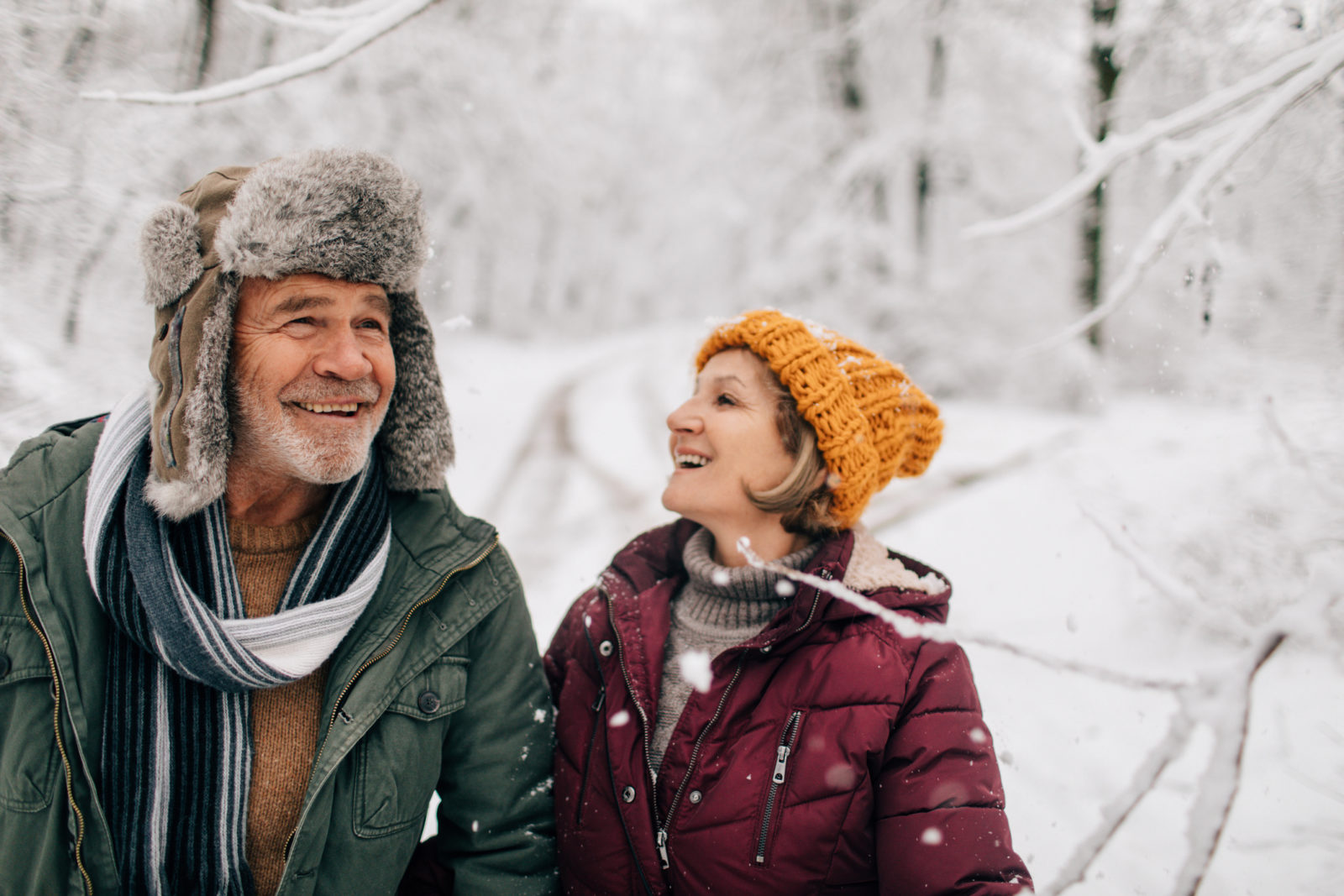Welcome, Winter! How to Make the Most of the Season.

Tomorrow marks the winter solstice, or the first day of winter. And while the National Oceanic and Atmospheric Administration predicts a milder winter than normal for the greater Boston area, last month’s Nor’easter demonstrated that Mother Nature is highly unpredictable. There will almost certainly be days of bitter cold, along with snow and ice, which creates hazardous conditions, especially for seniors. Icy conditions raise the risk of falling and seniors are at a greater risk for hypothermia. Here are some suggestions on how you can make this winter warm and safe.
Avoid going out after a snow or ice storm
Pay attention to weather alerts about freezing rain, snow and ice, all of which increase the risk of falls. A Canadian study showed that older people were 20 percent more likely to fall after a freezing rain. If you do need to go out, make sure you’re wearing the proper footwear – preferably boots with strong, nonskid soles. Consider using a pair of ski poles for balance if conditions are particularly bad. You can also purchase a traction devices for your shoes, which add even more safety. If you run across an icy patch, slow down and become conscious of your next step. Keep your knees loose and bend them to lower your center of gravity.
Break out your sweaters
Dressing warmly is an obvious but important way to stay warm this winter. As temperatures drop, hypothermia becomes a real concern for older Americans. Be sure and include a covering for your head and hands, which can lose a lot of heat. It’s always a good idea to dress in layers, so that you can remove articles of clothing as needed – or keep snuggled up in your favorite sweater. Not everyone keeps their thermostats turned up as high as what may be comfortable for you. Make sure and wear shoes with good traction and nonskid soles. If this doesn’t work with your outfit, carry the shoes you’ll be wearing at your destination.
Stay active
Don’t let cold weather keep you from getting some exercise. Staying physically active can help keep your muscles strong, which reduces your risk of falling. If your healthcare provider gives you the okay, try out winter sports such as snowshoeing or cross-country skiing. Head to your local senior center to take a yoga or tai chi class. Call up a friend and go bowling. By staying active, you’ll not only feel better in the short term, you’ll be laying the groundwork for many long-term benefits as well.
Stay connected with loved ones
Winter can often isolate seniors. Cold weather may keep many of them indoors, making contact with others less likely. That’s why it’s essential for seniors to find ways to become – and stay – engaged with others during wintertime. Make a date with a friend to see a movie or play. If you’re unable to get out because of a health condition, invite people over for coffee or tea. If all else fails, get on your computer and connect with others online.
Take precautions if you travel
Listen for radio or TV reports of travel advisories issued by the National Weather Service. Avoid travel in low visibility and on ice-covered roads. Avoid icy sidewalks at all costs, as falls are always a concern. If you must travel in ice or snow, let someone know your destination and when you expect to arrive. Bring a mobile phone with you.
Maintain a healthy diet
Eating healthfully during wintertime can be challenging – overindulging at holiday parties and events, a shrinking availability of many fresh fruits and vegetables, gifts of holiday cookies, pies and fruitcakes, and an inability to get out as easily can all contribute to eating less healthfully. It’s so much easier to order in a pizza than to head out into the cold to buy groceries. Consider shopping online and getting groceries delivered through such services as Pea Pod or Amazon Fresh. Or get recipes and ingredients delivered to your door through services such as Blue Apron or Hello Fresh. With a little planning, you can still eat well during the cold winter months.
![LifeCare Advocates [logo]](https://www.lcadvocates.com/wp-content/uploads/sites/270/2017/11/logo.png)